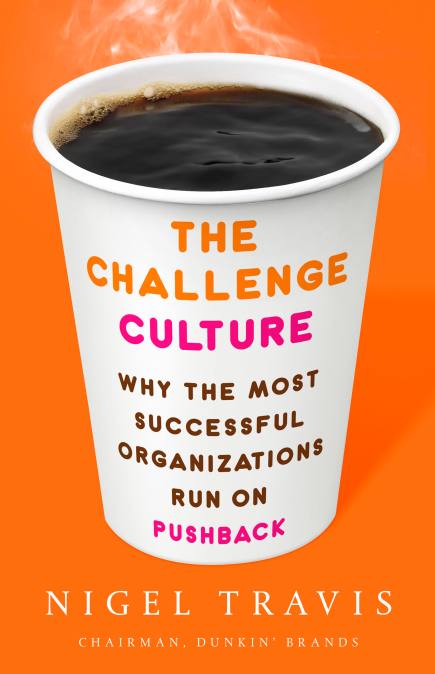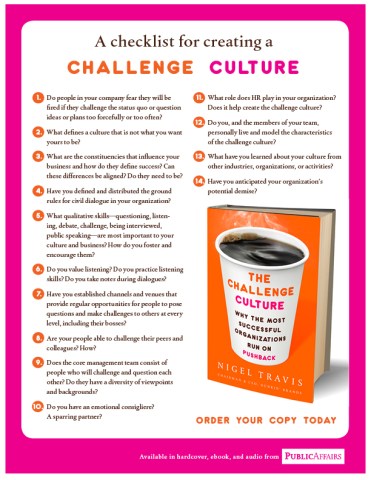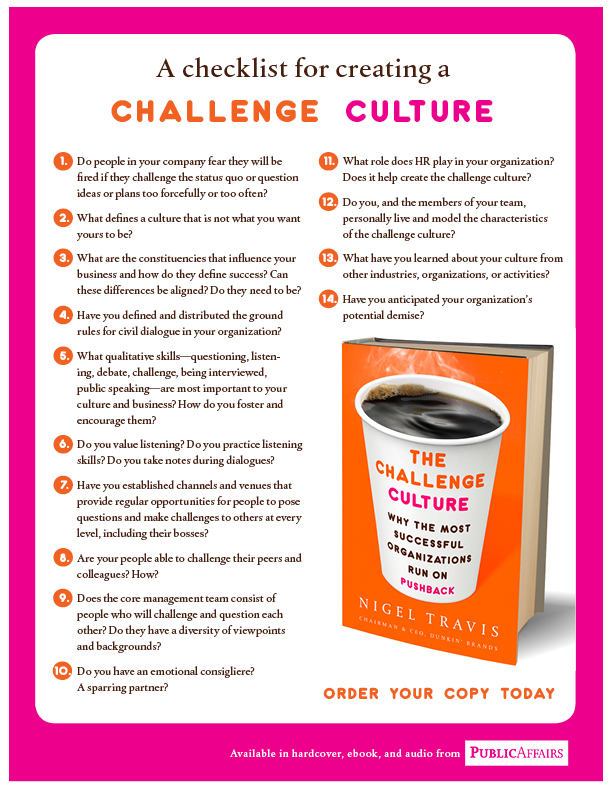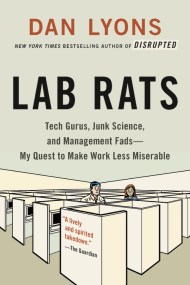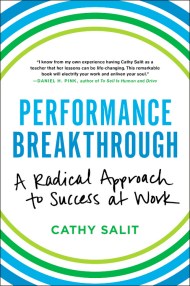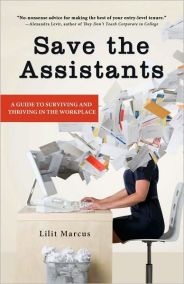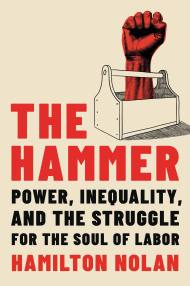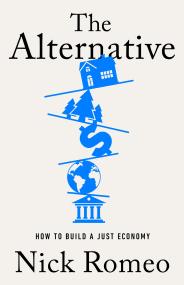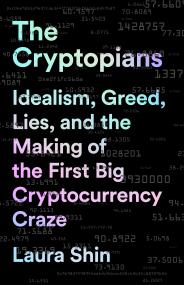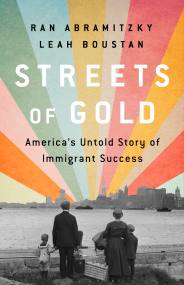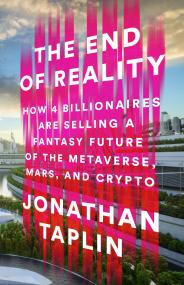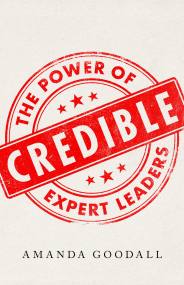Shopping Cart
The Challenge Culture
Why the Most Successful Organizations Run on Pushback
Description
We live in an era in which successful organizations can fail in a flash. But they can cope with change and thrive by creating a culture that supports positive pushback: questioning everything without disrespecting anyone.
Nigel Travis has forty years of experience as a leader in large and successful organizations, as well as those facing existential crisis-such as Blockbuster as it dawdled in the face of the Netflix challenge. In his ten years as CEO and chairman of Dunkin’ Brands, Travis fine-tuned his ideas about the challenge culture and perfected the practices required to build it. He argues that the best way for organizations to succeed in today’s environment is to embrace challenge and encourage pushback. Everyone-from the new recruit to the senior leader-must be given the freedom to speak up and question the status quo, must learn how to talk in a civil way about difficult issues, and should be encouraged to debate strategies and tactics-although always in the spirit of shared purpose. How else will new ideas emerge? How else can organizations steadily improve?
Through colorful storytelling, with many examples from his own career-including his leadership in turning around the fear-ridden culture of the London-based Leyton Orient Football Club, of which he is part owner-Travis shows how to establish a culture that welcomes challenge, achieves exceptional results, and ensures a prosperous future.
What's Inside
The first meeting of my management team, in January 2009, was a total bust.
We assembled in the conference room at corporate headquarters in Canton, Massachusetts, a suburb about fifteen miles south of Boston, not far from Quincy, the town where Dunkin’ was founded. There were ten members of the leadership team in the meeting, most in the room, a few on the phone. All the key disciplines were represented: the heads of U.S., international, marketing, human resources, legal, strategy, finance, and operations and some of their staff people. I didn’t know any of them very well; the majority of them were long-term Dunkin’ people who had worked together for years and knew the operations of the company far better than I did.
I welcomed everyone to the meeting and set out my agenda for the session: the goal was to explain my values, talk about the culture I wanted us to build at Dunkin’, and discuss together any changes we might need or want to make as we prepared for the public offering.
“Anybody want to add anything to that agenda?” I asked. “Any further thoughts? Questions?”
I looked around the room. All I got were little head shakes and murmurs of approval. Nobody had anything to add. No burning questions. No hearty agreement. No dissent.
“OK,” I said. “Good.” But it wasn’t good. I suddenly felt very heavy, as if the atmosphere in the room was thickening and pushing me down. I’m sure you know the feeling. “Well then, to start off, let me briefly tell you a little about myself,” I said. “And where I’m coming from.”
Stony faces. They looked as if they were preparing to be shot.
“I actually began my career in HR,” I said, as if that might be of some surprise or interest to the people in the room. Not so much. Blank looks.
I briefly skipped through the highlights of my career: my father the entrepreneur, the Brit upbringing, the stints at Grand Met, Burger King, Papa John’s, and Blockbuster. No comments. No questions. Just little noncommittal head bobs.
Then I began laying out my vision for Dunkin’ Brands: how I wanted to create a culture where all the constituencies could collaborate to improve operations, move forward with technology, innovate in food and beverage offerings, widen our customer base, expand into new geographies in the U.S. and abroad, while leveraging the fabulous Dunkin’ and Baskin-Robbins brands. And, of course, achieving a successful public offering within the next two to three years.
As I talked, I could feel the room fill up with fear, anxiety, uncertainty, hesitation, resistance, and doubt.
At the end of the meeting, which lasted about an hour, I felt profoundly frustrated. Clearly the leadership team, as it was then configured, did not have the challenge skills I was expecting and knew we needed. In a challenge culture, the meeting would have gone very differently. People would have felt free to make suggestions, ask questions, push back, and voice concerns and enthusiasms. What I got instead was guardedness and protectionism. I knew that things would have to change.
The first thing I did was make the leadership team meetings a weekly event, instead of monthly. We needed more time together. And I wanted to know sooner rather than later whether this group could shed the habits they had developed during years in the Dunkin’ culture. I realized that they, like the franchisees I spoke with, had been operating in an authoritarian world where there had been little effort to bring the constituencies together.
Would they change? Could they change? Did they want to change?
The answer for eight of the ten was no.
There was no wholesale housecleaning, no purge. Rather, one by one, it became clear that the person and the new culture were not compatible. Some left of their own accord. Some
I dismissed.
Throughout that period, I followed a few rules: state expectations, change people when needed, recruit people who can help build the culture, surround the team with talent. You need to state your expectations of people and the culture very clearly, and do it early and often. I had done this in that first meeting and continued to do so. You have to be explicit
about what you want and why you want it, and you have to say it over and over, while you’re modeling it. There is no shortcut. If people cannot change, you’ll have to change the personnel.
I don’t believe that it is always necessary for a new management team to oust the old team and bring in a whole new one. When I joined Papa John’s, for example, I did not change one member of the team. But when it is necessary, the changes must be made resolutely and, again, with the reasons made explicit. It’s essential to recruit people that you know will help reinforce the culture you want. People with skills in challenge, who aren’t afraid to question, who know the value of pushback. Finally, be sure to surround your leadership team with talented people who have a range of perspectives and can help the leaders look at the business in new ways.
Praise
—Nicole Lapin, author of Boss Bitch and Rich Bitch
